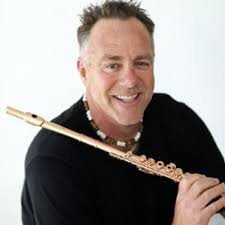Stunningly Beautiful Trios – La Jolla Music Society’s Beethoven Feast: Part Two
Greatness and mastery are ineffable. Saturday, May 15, the trio of pianist Wu Han, violinist Philip Setzer and cellist David Finckel put those attributes on display during their marathon traversal of a stack of Beethoven masterpieces. The programs, taken from the Op. 1, Op. 70, and Op. 97 Piano Trios, were presented in afternoon and evening installments, separated by a dinner break. I attended the second of these. The audience was offered the slightly sadistic pleasure of watching these fine, veteran musicians handle the demanding rigors of two taxing programs of great chamber music repertoire on the same day.
![Philip Setzer, Wu Han & David Finckel [photo (c) Frank Stewart]](http://www.sandiegostory.com/wp-content/uploads/2016/05/Wu-Han-and-trio_FrankStewart.jpg)
Philip Setzer, Wu Han & David Finckel [photo (c) Frank Stewart]
Pianist Han opened the proceedings with alluring and fascinating ad lib program notes delivered from the stage. Her energetic stage entrance and delivery, while sporting a stunning fuchsia kaftan, portended an exciting program. Her insights dovetailed nicely with the fine, published program notes of Eric Bromberger and brought unique views to the incipient listening experience.
From the brilliant, virtuosic opening passages of the Piano Trio in D Major, Op. 70, #1 (“Ghost”), it was clear that this was going to be a special night. Ensemble concerns were dispensed with immediately in the piece’s crackling, unison opening. This seamless playing was pretty easy to anticipate since Setzer and Finckel had played together as members of the exalted Emerson Quartet for over thirty years. These gentlemen know each other so well that the one says “Gesundheit” before the other one sneezes. Han and Finckel, a celebrated husband/wife, cello/piano duo in their own right, also seemed to know each others next move well in advance. There ensued a stratospheric level of ensemble work that was an utter joy to behold.
Pure magic showed her delightful face during the slow “Ghost” movement. Musical phrases were seemingly created from nothingness; floating upwards, they transmogrified and then descended to earth as transcendental musical events. The concluding third movement Presto provided a rollicking good time.
By the end of the first piece, it was apparent that the particular ecosystem of this trio was unique – and problematic. Han clearly serves as the alpha, which elicits challenges. The contemporary practice among pianists in chamber groups seems to be to perform with the piano lid completely open. Pianists tend to believe that the sound of the open instrument allows them a wider tonal palette. But if they are not constantly mindful, overpowering their onstage colleagues poses a constant danger.
Sherwood Auditorium’s massive, bright sounding Hamburg Steinway, coupled with Han’s huge sound and the lack of an acoustic shell muddied the blend of the three instruments. The strings huddled in their timbral world while the piano remained staunchly in its own. Mature musicians of this caliber should not fall prey to such pubescent problems or, in the case of the pianist, licentious temptations. Hopefully, some of the acoustic anomalies of Sherwood will be eliminated in coming years with the new $62.5 million Conrad Prebys Performing Arts Center (aka ‘The Conrad’), although overpowering one’s colleagues will not be solved with a new hall.
Fatigue from the marathon day seemed to set in during the performance of the Piano Trio in E-flat Major, Op. 70, #2. Setzer, in particular appeared to lose his way halfway through the piece, and the sensitive audience became aware that all was suddenly not well with the world. Being the crack professionals these players were, they still buckled down and delivered a “merely” excellent (read: not transcendental!) performance. Thankfully, they were saved by the intermission bell after receiving a standing eight count.
Revived with a few moments’ rest, the hardy band delivered a smashing post-intermission “Archduke” Trio in B-flat Major, Op. 97. Dedicated to Beethoven’s most important patron, the Archduke Rudolph von Hapsburg, the piece actually became the composer’s final public performance in 1814 (apparently, it did not go very well for the now nearly-deaf pianist). The “Archduke” stands, in a certain sense, as the paragon and virtual apotheosis of Beethoven’s fecund second, “Heroic” stylistic period. It displays the by-then famous, forty year old composer’s unique compositional mastery and brings with it steep, virtuosic requirements for its performers. The trio brought down the house with its overwhelming, muscular performance. The one issue that remained was one of balance, where Han’s fortissimo drowned out any possibility of nuance from her string playing colleagues.

Yochanan Sebastian Winston, Ph.D. has performed throughout the United States, Europe and Latin America. His repertoire spans classical, jazz, klezmer, new age, contemporary, rock & roll and pop and is very active as a composer. Dr. Winston holds a Ph.D. from the UCSD, a Diplôme from the Conservatoire National de Region de Boulogne-Billancourt (France), and a Master’s and Bachelor’s of Music from the Manhattan School of Music in New York City.
